Curated OER
Simple Machines Classification
Students demonstrate an awareness of the types of simple machines and classify common objects in relation to the simple machines involved.
Curated OER
Animals That Fly or Do Not Fly
Students classify animals according to if they can or cannot fly.
Curated OER
Plastics and Rubber: What's the Difference?
Students observe how to classify things into groups based on physical properties. In this plastic and rubber lesson students group and sort items to help them to better identify properties.
Curated OER
What's the Matter?
Students investigate matter. For this matter lesson, students identify types of matter and characteristics of each type. Students discuss matter and create matter posters to show understanding.
Curated OER
Classifying Living Things Wordsearch
In this biology worksheet, students locate and identify various vocabulary terms related to classifying living things. There are 24 biology terms located in the word search.
Curated OER
Classification
Students work in groups of 4-6 for the experiment/activity part of this exercise. They classify ten animals using the information on the picture to group the animals. Students develop descriptions, explanations, predictions, and models...
Curated OER
Make a Leaf Banner
Students create an leaf print banner, and classify, sort and find patterns in the leaves as they work.
Curated OER
Make a Leaf Banner
Students create leaf print banner for parents' night. They sort, classify, and pattern the leaves as they work.
PBS
Pbs Learning Media: A Different Kind of Fuel
In this segment from Curious, learn about creating energy from solar rays to meet the growing energy needs of the world. [6:09]
Smithsonian Institution
Smithsonian in Your Classroom: Teaching With Collections [Pdf]
This lesson is great for young learners who like to collect things. It gives you ideas of ways to teach such concepts as classifying, sorting, arranging, multiplying, graphing, and measuring with collections of simple objects.
Utah Education Network
Uen: Generating and Recording Data
This "fish" activity will help early elementary students develop skills related to categorizing, recording data, developing vocabulary, and counting. An assessment rubric is attached.
Read Works
Read Works: Lessons: Lesson 1: Adding to Sorted Groups
[Free Registration/Login Required] A lesson plan and materials to teach kindergarten students to sort items into existing categories using the book My Big Animal Book by Roger Priddy.
Read Works
Read Works: Lessons: Lesson 2: Sorting Into Predetermined Groups
[Free Registration/Login Required] A lesson plan and materials to teach kindergarten students to sort items into existing categories using the book My Big World Book by Roger Priddy.
Read Works
Read Works: Lessons: Lesson 3: Creating Groups and Sorting
[Free Registration/Login Required] A lesson plan and materials to teach kindergarten students to sort items into student created categories using the book My Big Truck Book by Roger Priddy.
Better Lesson
Better Lesson: Ways to Classify Objects
Learners often classify objects by size and shape. Now they will look more at the properties of objects such as hardness, flexibility, and texture. Included in this lesson are examples of student's science journal entries, a video of the...
CPALMS
Cpalms: Observable Properties of Matter
[Free Registration/Login Required] Students will sort objects according to their observable properties, such as size, shape, color, temperature (hot or cold), weight (heavy or light) and texture. Included are printable resources, a...
Better Lesson
Better Lesson: Ew, Gross!
In this lesson, students will be able to gather information from provided resources to answer a question. Using the book "Owls", the teacher will read the book while asking guiding questions. After the book, the students will have to...
PBS
Pbs Learning Media: Measuring With Mixie Bot
Children can measure with a favorite character to understand the value of standardized units of measure, such as inches and feet. This activity will help them practice measuring and understand comparing the measurements of one item to...
E-learning for Kids
E Learning for Kids: Science: Caribbean Sea: Mexico: What Is Classifying?
Christina wants to classify all kinds of different things. Help her sort things into main groups.
University of California
Ucmp: Phylogenetic Systematics: Evolutionary Trees
This page provides an introduction to phylogenetic systematics, the way that biologists reconstruct the pattern of events that have led to the distribution and diversity of life. A tutorial "journey" into the Introduction, Methodology,...
Science Education Resource Center at Carleton College
Serc: Using and Creating a Dichotomous Key
Students will investigate classification through a sorting activity and discus real-life evidence of classifying objects.
Science Education Resource Center at Carleton College
Serc: Describing Fall Leaves Through Words and Music
Students collect, describe, and sort leaves found outside. As a cross-curricular component, they will improvise on musical instruments in a way that they feel describes a dominant leaf characteristic.
Science Education Resource Center at Carleton College
Serc: Rock Investigation
In this activity students will observe and investigate rocks in order to classify them in terms of color, shape, texture and size.
Polk Brothers Foundation Center for Urban Education at DePaul University
De Paul University: Center for Urban Education: Classify and Summarize Information [Pdf]
This learning module contains a link to graphic organizers that will help students categorize content and comprehend short and extended texts. The graphic organizers are designed to be applied to reading nonfiction passages in science...








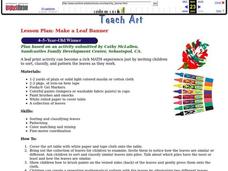


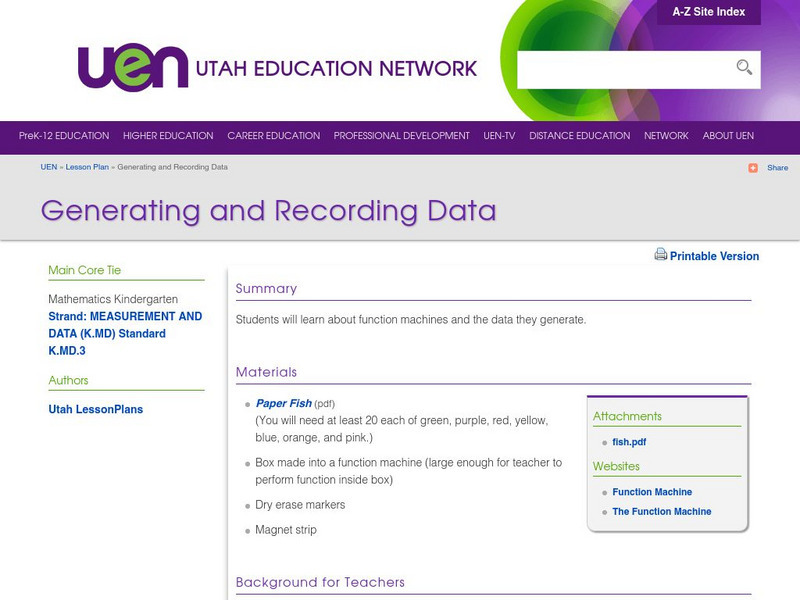


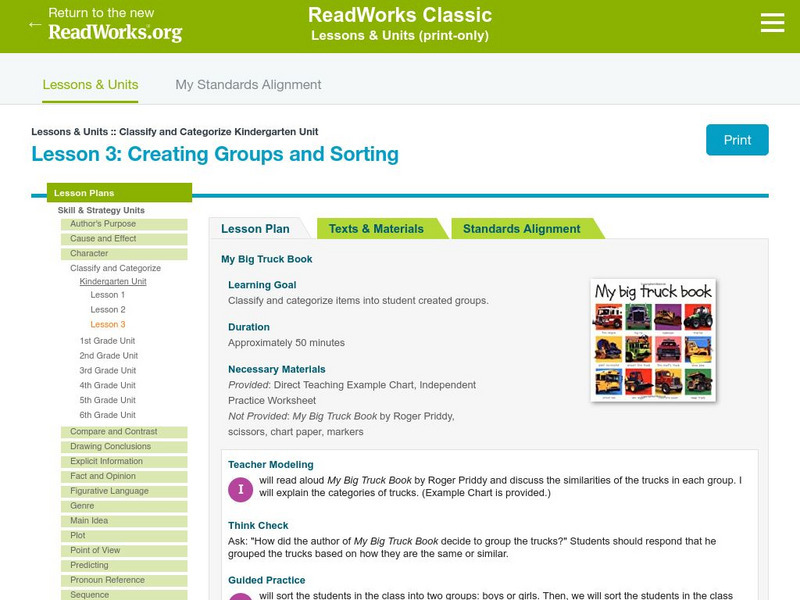


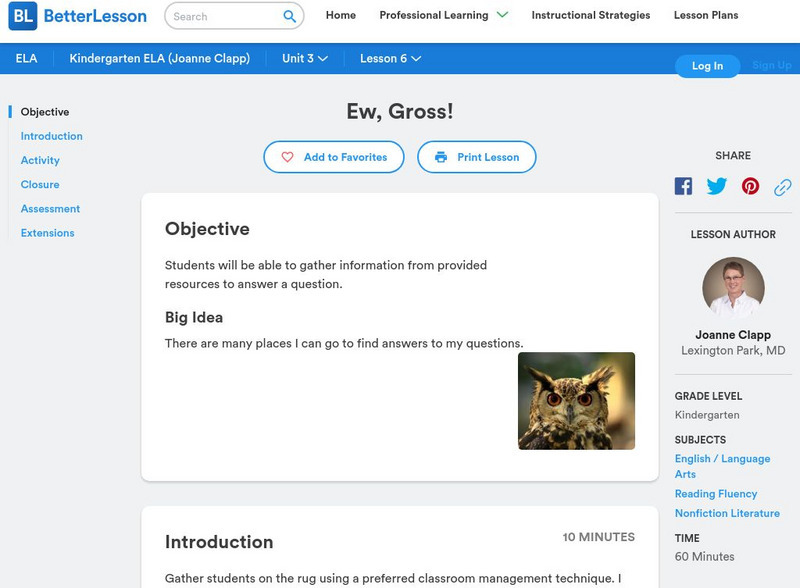

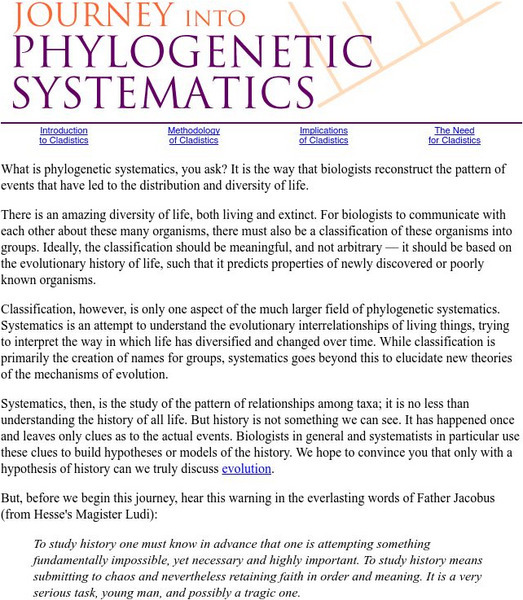
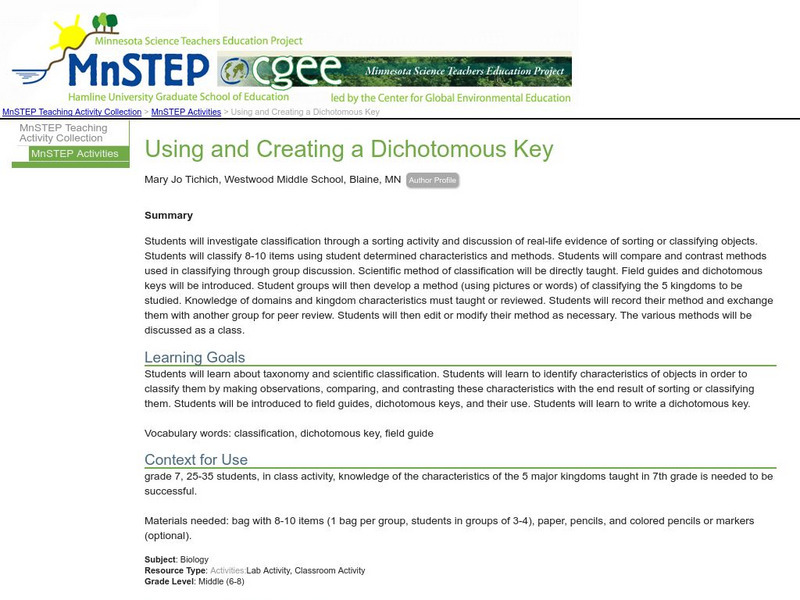
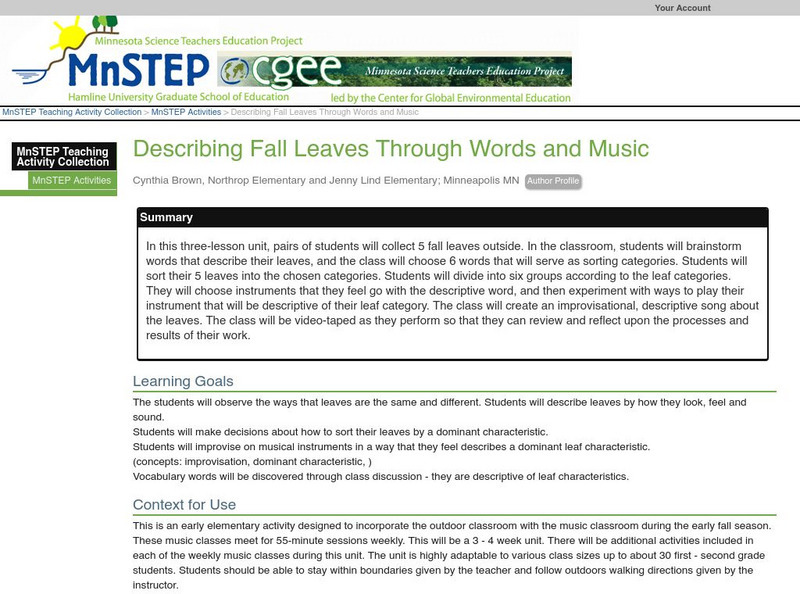

![De Paul University: Center for Urban Education: Classify and Summarize Information [Pdf] Unit Plan De Paul University: Center for Urban Education: Classify and Summarize Information [Pdf] Unit Plan](https://content.lessonplanet.com/knovation/original/78057-7ba90e0b8b82fde8e26d306a4af31f79.jpg?1661787062)